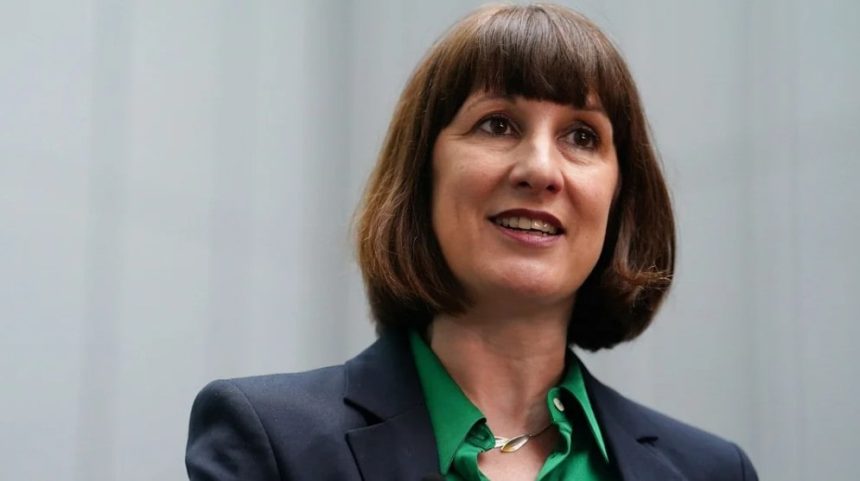Chancellor Rachel Reeves faces mounting pressure as the International Monetary Fund (IMF) signals a bleak outlook for her fiscal strategy.
In a sobering assessment, the IMF has warned Chancellor Rachel Reeves that she may have to abandon a major Labour manifesto pledge to avoid deeper economic strain.
The global financial body suggests Reeves will likely be forced to raise taxes, introduce charges for NHS services, or scrap the triple lock on pensions to restore balance to the UK’s public finances.
The intervention comes just a year after Reeves hiked taxes by £40 billion in her first Budget, a significant portion of which was earmarked for increased NHS investment.
Now, the IMF’s latest “Article IV Consultation with United Kingdom” casts doubt on Labour’s key promise not to raise taxes on “working people” — namely, income tax, VAT, or employee national insurance contributions.
“Unless the authorities revisit their commitment not to increase taxes on ‘working people’, further spending prioritisation will be required to align better the scope of public services with available resources,” the IMF report warned.
The report lays out a series of potentially controversial reforms, including replacing the triple lock pension system with cost-of-living indexation, expanding means testing of benefits, and introducing NHS co-payments for higher-income individuals.
“Access to public services could also depend more on an individual’s capacity to pay… while shielding the vulnerable,” the IMF said.
This analysis comes amid ongoing financial constraints, driven by global headwinds like Donald Trump’s revived tariff battles and the UK’s limited fiscal headroom.
As pressure builds on Chancellor Reeves, the IMF’s warning may force a political reckoning — where hard choices around taxation, welfare, and healthcare funding could define Labour’s economic legacy.
The timing couldn’t be worse for Ms Reeves, already facing speculation about a potential cabinet reshuffle as the UK economy continues to stall. Meanwhile, debate within Labour over introducing wealth taxes is intensifying.
Business Secretary Jonathan Reynolds dismissed the idea outright, calling it “daft” during a GB News podcast.
“There’s no kind of magic [tax]. We’re not going to do anything daft like that. What if your wealth were not in your bank account? [What if it is] in fine wine or art?” Reynolds said, cautioning against unrealistic expectations from the party’s left.
Reynolds reaffirmed the government’s approach of targeting wealth via specific policy adjustments — such as taxation on private jets, changes in inheritance tax, and modifications to capital gains — rather than imposing broad-based wealth levies.
His comments are understood to echo the positions of both Reeves and Prime Minister Keir Starmer, who have remained cautious on the wealth tax debate.
However, the deputy prime minister, Angela Rayner, reportedly presented eight proposals to Reeves, including reinstating the pensions lifetime allowance and adjusting dividend taxes.
Adding to Reeves’ woes, junior doctors are currently on strike, demanding a 29% pay increase. Unions across various sectors are growing louder in their calls for fairer wage settlements, further testing the Treasury’s limited spending room.
Amid these challenges, there are growing fears that Reeves could again freeze income tax thresholds — a move that would push millions into higher tax bands and strain household finances.
Despite the sharp warnings, the Treasury highlighted the IMF’s endorsement of Labour’s “Plan for Change”, describing it as balanced and growth-oriented.
“The authorities’ Growth Mission covers the right areas to lift productivity,” the IMF stated, while adding a caution: “Prioritising and sequencing of structural reforms, along with clear communication, will be key to success.”
Forecasts suggest the UK economy will grow by just 1.2% — a marginal improvement but still far from robust recovery territory.
In response to the report, Reeves struck an optimistic note: “Today’s IMF report confirms that the choices we’ve taken have ensured Britain’s economic recovery is underway… We’re committing billions of pounds to improving transport connections, providing record funding for affordable homes, as well as backing major projects like Sizewell C to drive economic growth.
There’s more to do, and that’s why we’re slashing unnecessary red tape and unblocking investment to let British businesses thrive and put more money in working people’s pockets.”
Tory shadow chancellor Mel Stride seized on the IMF’s conclusions as proof that Labour’s economic policy is faltering.
“This is yet more confirmation that Labour’s mismanagement means yet more tax rises are coming in the autumn. The chancellor has already maxed out the credit card; her only options are to cut spending or raise taxes.
Be in no doubt, this mess is down to Labour’s choices, and it is the working people Labour claim to be protecting who are paying the price,” Stride said.
As Britain grapples with economic sluggishness, rising demands on public services, and internal party divisions, the Chancellor faces a harsh reality: difficult choices lie ahead — and compromise may be inevitable.






